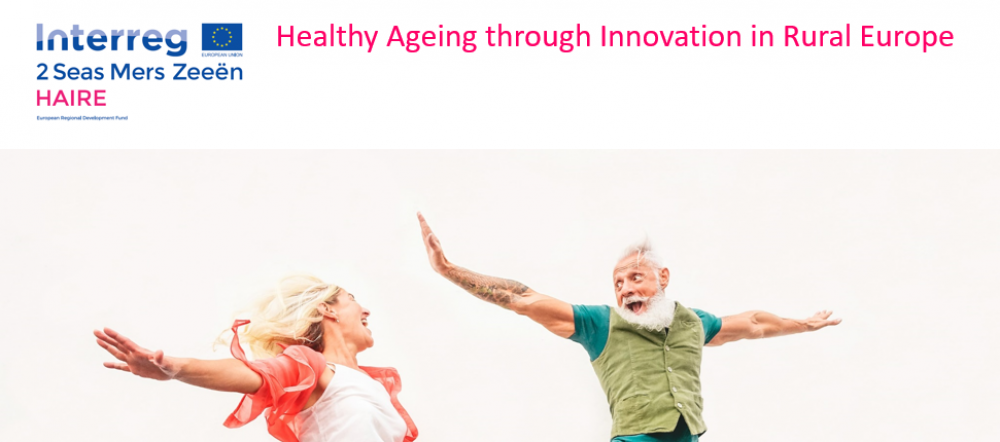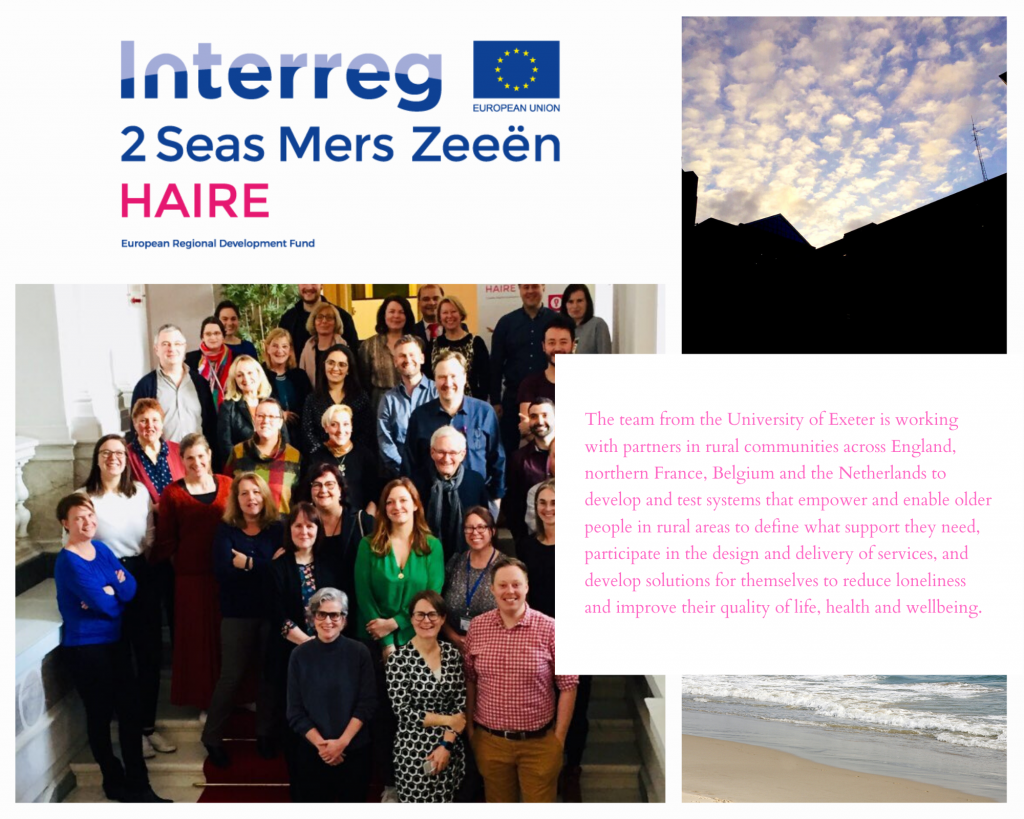This month, Dr Shuks Esmene, HAIRE Research Fellow, provides an update on research co-design and development through lockdown.
Despite the difficulties posed by COVID-19 and the restrictions of lockdown, HAIRE’s activities around co-designing research tools appropriate to our specific pilot sites is underway and progressing. With our target group, the over 60s, among the most vulnerable, we had – and still have – to be creative and open minded about alternative ways of reaching our participants and volunteers, and planning with our research and delivery partners has, of course, been restricted to online activity only.
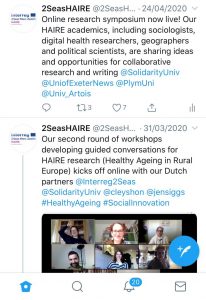 Thus, in the absence of being able to meet with people face to face, we adapted our partner engagement activities and co-design workshops to run virtually. We’ve done guided conversation workshops developing toolkits, discussing cultural context and sharing stories about how people use their spaces in different countries. We are working with our partners in the Netherlands, France and Belgium in new ways all the time – evidenced by our tweets!
Thus, in the absence of being able to meet with people face to face, we adapted our partner engagement activities and co-design workshops to run virtually. We’ve done guided conversation workshops developing toolkits, discussing cultural context and sharing stories about how people use their spaces in different countries. We are working with our partners in the Netherlands, France and Belgium in new ways all the time – evidenced by our tweets!
Lockdown poses challenges around sharing highly visual and participatory materials, but we were able to receive valuable feedback through our continued and open approach to communicating with our partners. Technology has allowed us to carry on with our research despite the barriers. To date, we have produced first iterations of conversational and visual prompts that we’ll be using with participants. Each location has both shared and unique issues to explore, and the way we use the images will allow each participant to make their own connections and stories and needs and ideas. We have been working on training guidelines so that volunteers will be confident using the visual materials and prompts.
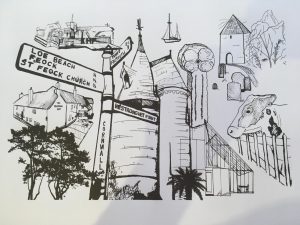 This is an example of the initial imagery inspired and created with our partners in the Cornish pilot site at Feock, which will form part of the guided conversation with older people in the local area. These images are from a specific part of the Feock pilot site. Images from other areas of the pilot site will be added to the design before a final version is produced.
This is an example of the initial imagery inspired and created with our partners in the Cornish pilot site at Feock, which will form part of the guided conversation with older people in the local area. These images are from a specific part of the Feock pilot site. Images from other areas of the pilot site will be added to the design before a final version is produced.
Our continued and open approach to communication has helped us respond to support some partners who have asked for additional tools in the face of Covid-19. We are currently working with our Dutch partners to scope the feasibility of rolling out a conversational tool that social workers in their pilot site can use now, while issues like loneliness are starkly evident. The aim of this is to try and understand the challenges individuals have faced due to the pandemic and how local resources can be used to support them to overcome these challenges. This will also provide our partners with insights into which local resources need development, or where there are gaps that could be filled.
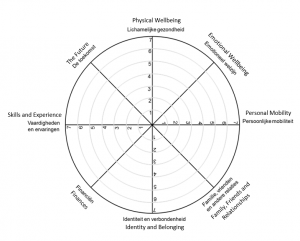
Radar diagrams have been developed in which participants can plot how strongly they feel about certain issues – and even create radar diagrams of their own.
So it is that despite the limitations that lockdown sets us, we are finding ways to reach older people in rural communities who need support more than ever.
Dr Shuks Esmene, Research Fellow, is working with HAIRE’s pilot site partners in the UK, Belgium, France, and the Netherlands, as well as digital design studio M-A-P to co-design guided conversations appropriate for each location. Dr Esmene is part of the University of Exeter’s Social Innovation Group (SIG). You can find out more about his work with SIG, his research interests and other SIG team members by clicking here.
